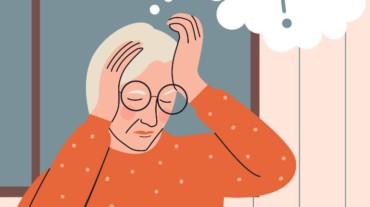
Among the many health mysteries that medical science does not yet have an answer to is a condition that afflicts mostly the elderly – Alzheimer’s disease. It is caused by a combination of genetic and environmental factors and affects memory, thinking, communication, and social abilities of the elderly.
As per statistics, the number of people with dementia (a condition of which Alzheimer’s is a leading cause) is expected to increase to 7.6 million by 2030. It is known that treatment, including medication, can help in slowing down the progression of Alzheimer’s. But now non-pharmacological therapy or NPT is also fast emerging as a way to manage the condition. NPT can improve function, independence, and quality of life and is a non-invasive methodology of intervention.
The various interventions under NPT are aimed at improving symptoms, reducing caregiver stress, and ameliorating the environment. It contains both simple and complex approaches that help in maintaining function and participation as long as possible, to reduce disability.

This is one of the better explored NPTs and the most robust alternative to regular medicine-based treatment for Alzheimer’s. Cognitive intervention consists of three aspects: stimulation, training, and rehabilitation. The goal is to enhance the individual’s general cognitive and social functioning through a set of standard tasks. The approach is tailor-made for each patient. It is possible to ensure that this kind of an approach is taken in the comfort of one’s home through trained caregivers.
One of the characteristic features of Alzheimer’s is that it reduces a person’s ability to perform their daily tasks over time. This can impact the well-being of patients and therefore, preserving the ability to carry out basic tasks is an important aspect of managing Alzheimer’s. This is where occupational therapy helps in increasing their functional abilities and enhancing independence. The technique involves environmental modification, adaptive aids, problem-solving strategies, skill training, among other things to maintain their physical and mental capabilities.
Also read: Practicing Ganesh Mudra can help you with Alzheimer’s

As its name explains, music therapy uses music or sound as a form of communicating non-verbally with the patients. It helps in inducing educational, rehabilitative or therapeutic effects through singing, listening, improvising or playing along with instruments. There is also enough evidence to suggest that music and related therapy programmes have a positive effect on older adults. Most of us might have come across the social media post about an old ballet dancer in a wheelchair responding to music and trying to wave her hands remembering her lessons while singing along. This is because music not only facilitates communication and emotional expression but also stimulates motor and cognitive functions.
Touch and massage have been documented as an alternative mode of treatment in many conditions – and now Alzheimer’s as well. When done in the right manner, this approach can help in calming the elderly with dementia, improve appetite, sleep and communication problems, etc. A good massage stimulates the production of oxytocin which further helps improve certain associated symptoms and proves to be very reassuring for them.
Technology has greatly improved healthcare and access to it. Alzheimer’s is a long-term condition that requires continuous care, and a technology like telemedicine can prove to be a valuable alternative tool in its management. It can enable doctors to follow-up with their patients and become the much-needed reassurance that caregivers and the patients need. As per a recent study, telemedicine not only enabled better access and quality of dementia care but patients also preferred this mode of consultation to the traditional route.

With the increasing number of elderly in India and around the world, the need of the hour is solutions that not only address the treatment aspect of Alzheimer’s but also consider the emotional and psychological needs of those with the condition. Home healthcare companies can have a major role to play in ensuring that this kind of an alternative treatment approach is enabled in the comfort of their homes. Going forward, it will be all about how we make the future better for those who created ours.
Select Topics of your interest and let us customize your feed.
PERSONALISE NOW